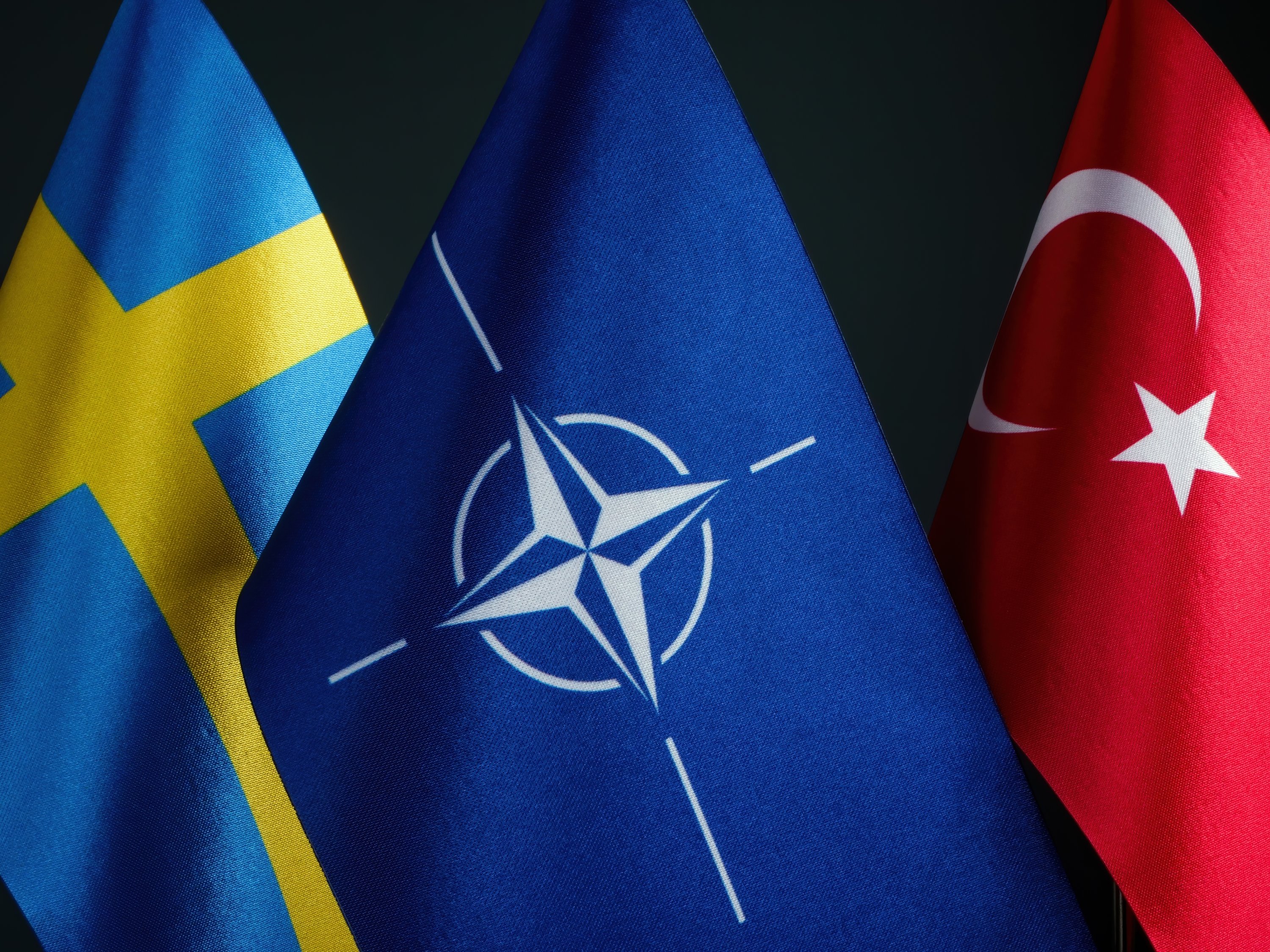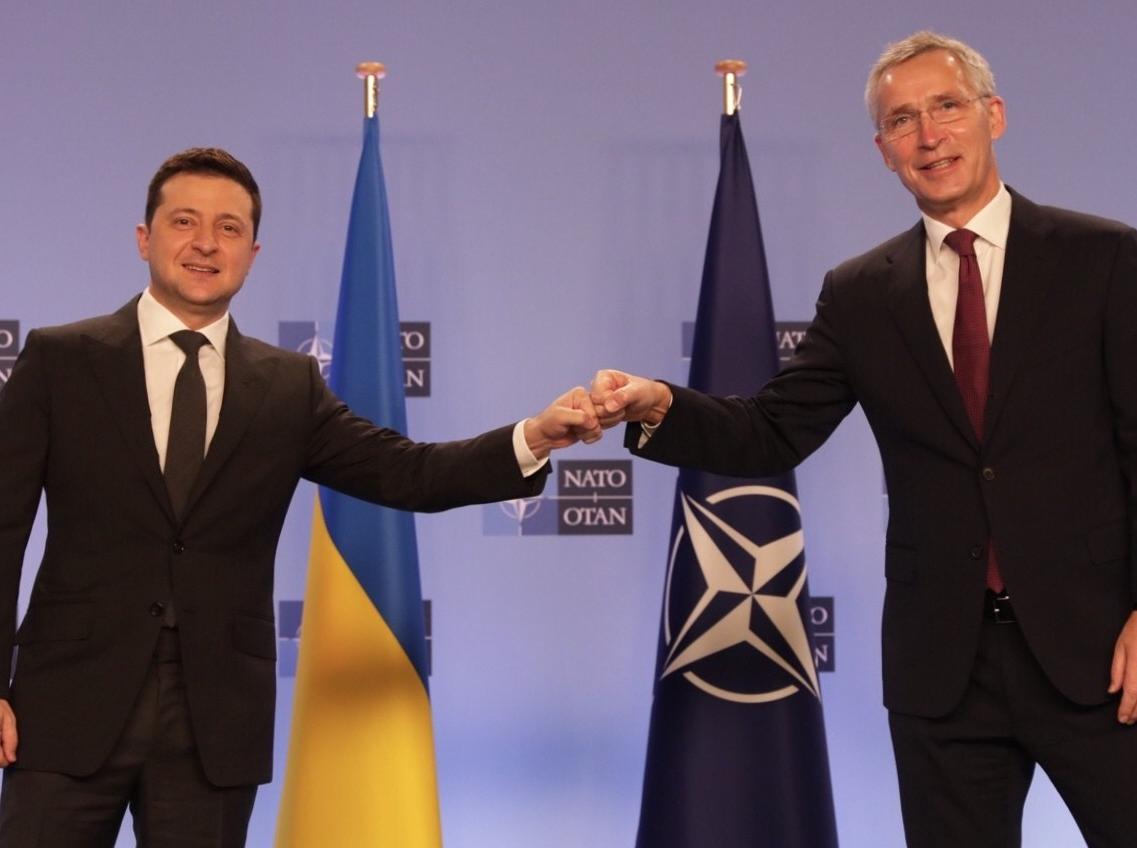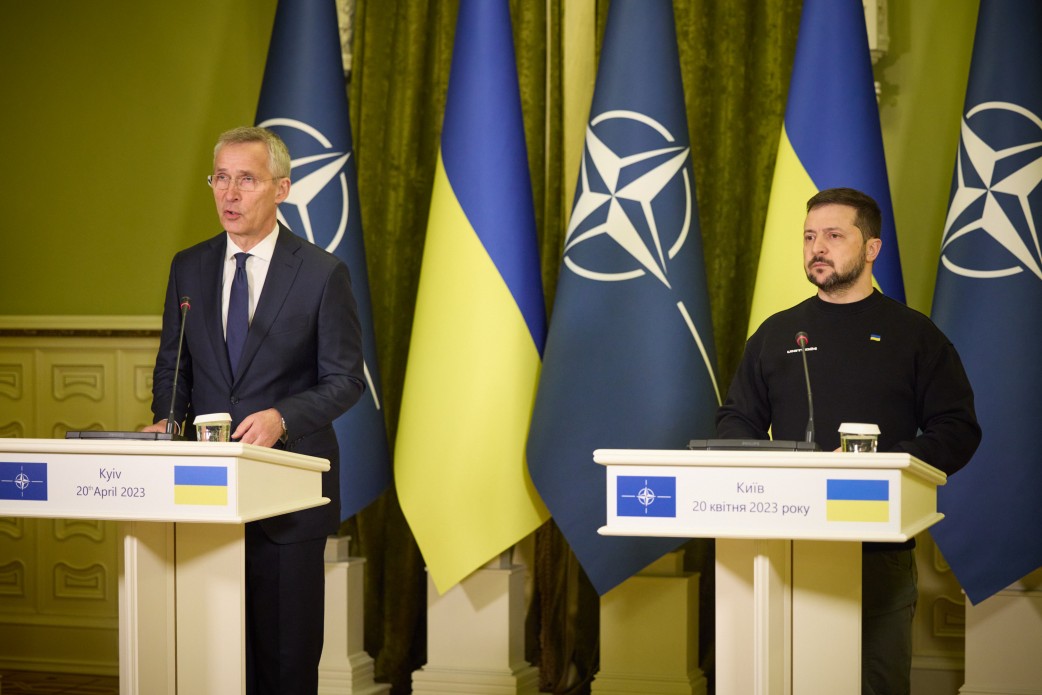How Russia’s Invasion Of Ukraine Pushed Sweden To Join NATO; How Will It Benefit Sweden, And Why Is Ukraine Still Struggling?
Following Russia's invasion of Ukraine, Sweden's decision to join the NATO marks a crucial moment in European security dynamics. After decades of neutrality, Sweden's strategic reorientation towards NATO reflects shifting geopolitical realities and evolving threat perceptions in the region. What were the motivations behind Sweden's historic decision, its benefits to Sweden and NATO, and the broader implications for Euro-Atlantic security? At the same time, the question of Ukraine's potential accession to NATO is fraught with complexities and geopolitical implications. Despite Ukraine's expressed desire to join the alliance to bolster its security and sovereignty, several factors have contributed to the challenges it faces in pursuing NATO membership.

The recent decision by Sweden to join the North Atlantic Treaty Organization, NATO marks a significant milestone in the nation’s foreign policy and regional security dynamics.
For decades, Sweden maintained a policy of neutrality and military non-alignment, refraining from joining military alliances following the Napoleonic wars and throughout the Cold War era.
So why did Sweden change its stand?
Russia’s invasion of Ukraine in 2022 fundamentally altered Sweden’s security calculus. The swift and aggressive nature of Russia’s actions prompted Sweden to reassess its longstanding neutrality policy and seek closer security cooperation with NATO.
Reflecting growing concerns about Russia’s intentions in the region, public opinion in Sweden shifted significantly in favour of joining the alliance.

The Path to NATO Membership
Sweden’s journey towards NATO membership faced several obstacles, including diplomatic negotiations and internal political dynamics.
For one, Turkey and Hungary, existing NATO members, initially withheld their approval, causing delays in the accession process.
Turkey’s conditions, primarily focused on addressing security concerns related to Kurdish militants, were eventually met, paving the way for Hungary’s final approval.
Hungary’s parliamentary voted in favour of Sweden’s NATO membership despite Hungary’s initial reluctance, signalling the end of protracted negotiations and bureaucratic hurdles.
Benefits for Sweden
Joining NATO offers tangible security benefits for Sweden, particularly in the face of growing Russian assertiveness.
Under Article 5 of the NATO treaty, an attack on one member is considered an attack on all, providing Sweden with a collective defence mechanism and deterring potential aggressors – the security umbrella enhances Sweden’s national defence capabilities and reduces the risk of isolation in times of crisis.
Additionally, Sweden gains equal rights within NATO decision-making structures, enabling more significant influence on strategic matters and reinforcing its position as a key player in European security architecture.

Strategic Implications for NATO
Sweden’s accession to NATO enhances the alliance’s military capabilities and strategic positioning, particularly in the Baltic Sea region.
Geopolitically, Sweden’s Baltic coastline would now become integrated into NATO’s defensive perimeter, strengthening the alliance’s deterrence posture against potential Russian aggression.
Likewise, Sweden’s modern and well-equipped military, including advanced fighter jets and naval assets, would strengthen NATO’s operational capacity in Northern Europe.
Moreover, Sweden’s defence industry would also contribute to NATO’s technological prowess and the military-industrial complex, stimulating innovation and interoperability among member states.
Russia’s Reaction
Unsurprisingly, Russia has expressed dissatisfaction with Sweden’s decision to join NATO, citing concerns about regional stability and security.
Moscow perceives NATO expansion as a direct threat to its sphere of influence and has warned of potential countermeasures.
The Kremlin’s response stresses the heightened tensions in Northern Europe and the broader geopolitical rivalry between Russia and the West. However, at the same time, Sweden’s NATO membership reflects a broader strategic realignment in European security dynamics, driven by evolving threat perceptions and geopolitical imperatives.

Why Is Ukraine Still Struggling To Join NATO?
Ukraine has long expressed its desire to join NATO, but the same has not happened even as the war with Russia enters its second year.
Considering that Sweden has achieved membership, what factors do not favour Ukraine and hinder its membership?
Russia’s Opposition
One of the fundamental reasons for this is Russia vehemently opposes Ukraine’s accession to NATO, viewing it as a direct threat to its security and sphere of influence.
From Russia’s perspective, NATO’s expansion eastward brings the alliance’s military forces uncomfortably close to its borders, heightening its sense of vulnerability.
Moscow fears that Ukraine’s integration into NATO could further encroach upon Russian territory and diminish its strategic leverage in the region. This opposition manifests in various forms, including diplomatic pressure, military aggression, and propaganda campaigns aimed at undermining Ukraine’s Euro-Atlantic aspirations.
Risk of War
The prospect of Ukraine joining NATO carries significant risks, including the potential for armed conflict with Russia.
NATO leaders recognize the gravity of this scenario, understanding that it could escalate into a full-scale war, possibly involving nuclear weapons.
Thus, the volatile situation in Eastern Europe emphasizes the precariousness of NATO-Ukraine relations and the need for careful diplomatic manoeuvring to avoid triggering a catastrophic military confrontation.
Erosion of NATO’s Reputation
NATO prides itself on being a defensive alliance committed to upholding democratic values and international security. However, admitting Ukraine, a country grappling with democratic shortcomings and internal conflicts, poses challenges to NATO’s credibility as a guardian of democratic norms.
Critics argue that integrating Ukraine into NATO could undermine the alliance’s reputation by associating it with a nation struggling with political instability and governance issues.
Risk of a Wider War
Ukraine’s ongoing conflict with Russia adds a layer of complexity to NATO’s deliberations on membership.
The invocation of Article 5, which stipulates collective defence among NATO members in the event of a Russian attack on Ukraine, could potentially escalate the conflict into a broader war involving other alliance members.
Thus, NATO faces the dilemma of balancing its commitment to collective defence with the need to avoid aggravating regional tensions and risking a wider armed confrontation.

Ukraine’s Fight for Independence
Ukraine’s desire to join NATO is driven by its quest for statehood, independence, and security guarantees against external aggression, particularly from Russia.
However, NATO’s reluctance to extend membership to Ukraine stems from concerns about worsening the conflict and entangling the alliance in Ukraine’s internal struggles.
While NATO supports Ukraine’s sovereignty and territorial integrity, it must carefully weigh the implications of incorporating a nation embroiled in a protracted conflict into its security framework.
The Last Bit, Sweden’s decision to join NATO represents a significant paradigm shift in its foreign policy orientation and regional security posture.
However, by aligning itself with the transatlantic security architecture, Sweden seeks to enhance its defense capabilities, strengthen collective security arrangements, and mitigate external threats.
Sweden’s NATO membership also contributes to the alliance’s strategic objectives, strengthening deterrence against potential adversaries and promoting greater regional stability.
At the same time, Russia’s objections underline the complexities of Euro-Atlantic security dynamics; Sweden’s accession to NATO reaffirms the alliance’s relevance and resilience in an era of geopolitical uncertainty, something that Russia would be wary of.
Ukraine’s aspirations to join NATO face complex obstacles, including Russian opposition, the risk of war, concerns about NATO’s reputation, the specter of wider conflict, and the complexities of Ukraine’s fight for independence – for NATO it is a slippery slope and a tricky balancing act.




